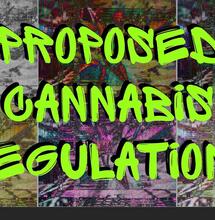Home-grown cannabis law rejected

A law decree proposal by the Left Bloc to legalise growing cannabis for personal consumption and social clubs to consume the product was rejected on Friday
A law decree proposal by the Left Bloc to legalise growing cannabis for personal consumption and social clubs to consume the product was rejected on Friday
The majority of Socialists and the "Greens" abstained from the vote which would have brought Portugal closer to legislation practised in countries like the Netherlands.
Portugal has, for a long time, been a case study for other countries on how to effectively deal with drug problems.
Last October, the UK Drug Policy Commission told Westminster it should reform its drug legislation in accordance with the "success story" evident in Portugal which decriminalised drug use at the turn of the millennium.
The independent body which reviews and analyses drug use in Britain proposed a shift in UK drug laws in a bid to ease the adverse effects they have on British society.
In a 173-page document, which took six years to compile, the UKDPC proposed what many might perceive as a radical rethink of how responses to drug problems are structured in Britain, but which it says has worked to great effect in Portugal.
Experts are quoted in the report as saying criminal sanctions imposed on the 42,000 people sentenced each year for possession of all drugs - and the 160,000 given cannabis warnings - should be replaced with simple civil penalties such as a fine, attendance at a drug awareness session or a referral to a drug treatment programme, similar to what currently happens in Portugal.
The UKDPC explained the experience of Portugal shows that in the event of decriminalisation, drug use would not increase and resources can be directed to treating addiction and tackling organised crime.
Following the changes in drug classification and respective punishment in 2001 in Portugal, no negative effects have been felt in Portugal, the Institute for Drugs and Addiction (IDT) said in 2009.
A report by the European Observatory for Drugs and Addiction (OEDT) has also confirmed that there had not been a rise in consumption in Portugal following the decriminalisation, nor had the country become sought after as a destination for drug users.
The IDT said "figures show that, from the time of decriminalisation until now, there has been a positive evolution regarding the phenomenon of drug abuse and addiction in Portugal".
"It was also confirmed that Portugal has not become a destination for drug-tourism nor has there been a boom in the number of users following the decriminalisation."
The OEDT's report highlights Portugal's solution for decriminalising drug use by sending addicts to a support group, a procedure that has been followed for 11 years.
While the UK is still looking at the Portuguese example on how to ease the 2,000 drug-related deaths it records each year and improve the treatment of an estimated 380,000 drug users, public opinion was highly critical of Portugal when it made widespread legislative changes in 2001.
Several leading British publications back in 2001 proclaimed Portugal as a drug haven for tourists.
The Times, BBC, The Scotsman and other publications all declared Portugal as the "New Amsterdam", at the time quoting current Minister of Foreign Affairs Paulo Portas.
The Times was accused by the then Socialist government as being "sensationalists" and said the newspaper was "unaware of the reality and does not know how drug consumption is punished both here in Portugal and abroad."
Paulo Portas was quoted as telling in The Times in an article entitled, ‘Portugal police won't arrest drug takers' that "there will be planeloads of students heading for the Algarve to smoke marijuana and take a lot worse, knowing we won't put them in jail. We promise sun, beaches and any drug you like."
The BBC meanwhile pondered whether Portugal had become "The new Amsterdam", once again quoting PP leader Paulo Portas: "I fear that we will become, sooner or later, a paradise for drug addicts."
While these fears have since proven to be unfounded, and despite the expert-view that no serious rise in consumption is likely if possession of small amounts of controlled drugs is allowed, Downing Street seems unlikely to propose any changes.
Last September, British Home Secretary, Theresa May, ruled out any moves towards decriminalisation, saying it would lead to further problems.
"People can die as a result of taking drugs, and significant mental health problems can arise as a result of taking drugs", she told MPs, saying cannabis was a gateway drug which led to the abuse of other and stronger drugs.
http://theportugalnews.com 16/05/2013



